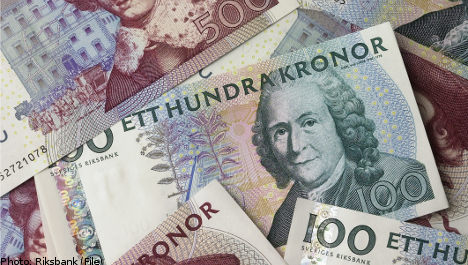Eighty-nine of Sweden’s 290 municipalities are increasing taxes, while as many as eight county councils plan on doing the same, shows a review from Statistics Sweden (SCB).
Municipal taxes will go from a national average of 31.60 to 31.73 percent, although seven municipalities and four county councils are actually lowering taxes.
About 12 percent of Swedes will see lower taxes, while 44 will see them go up. That leaves another 44 percent hovering at the same level as 2012.
Habo, Lindesberg and Dorotea municipalities are in for the heftiest raise, all around the 1 percentage point mark.
Österåker and Norrtälje residents, meanwhile, are in for the biggest decrease at 0.25 and 0.20 percentage points respectively.
Yet, despite number crunching at the municipal level, observers note that it is the county councils that could cause the biggest fluctuations, as their budgets have to cover health care services.
”We were expecting this. County councils have a hard time fighting rising costs, especially within healthcare”, Annika Wallenskog, chief financial analyst at the Swedish Association of Local Authorities and Regions (Sveriges Kommuner och Landsting, SKL) told the TT news agency.
She cited predictions of layoffs and unemployment as a burden at a time when many municipalities also need to make a significant number of investments.
”Sweden has one of Europe’s highest urbanization rates, which means we have to redesign hospitals and schools,” she said.
“Furthermore, a lot of our housing stock is from the 1970s and will soon need to be renovated.”
TT/The Local/at



 Please whitelist us to continue reading.
Please whitelist us to continue reading.
Member comments